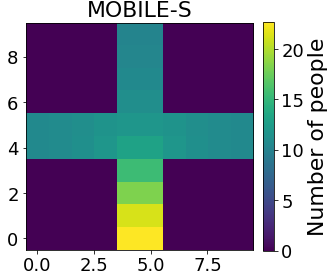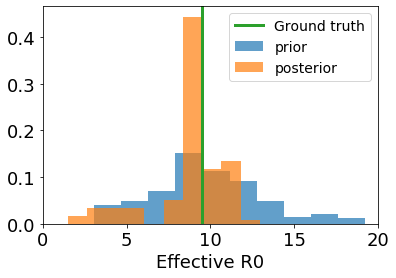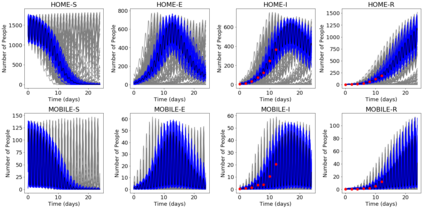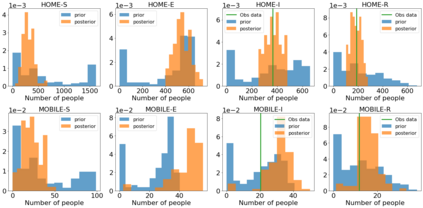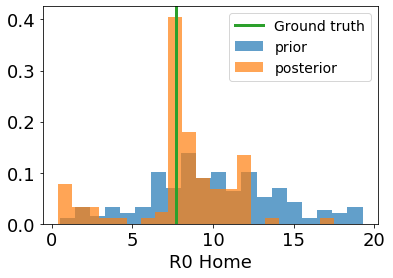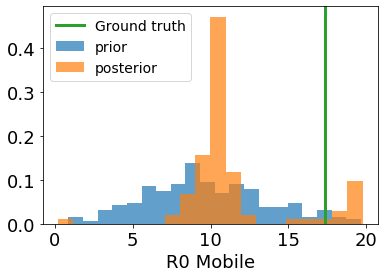We propose a new method in which a generative adversarial network (GAN) is used to quantify the uncertainty of forward simulations in the presence of observed data. Previously, a method has been developed which enables GANs to make time series predictions and data assimilation by training a GAN with unconditional simulations of a high-fidelity numerical model. After training, the GAN can be used to predict the evolution of the spatial distribution of the simulation states and observed data is assimilated. In this paper, we describe the process required in order to quantify uncertainty, during which no additional simulations of the high-fidelity numerical model are required. These methods take advantage of the adjoint-like capabilities of generative models and the ability to simulate forwards and backwards in time. Set within a reduced-order model framework for efficiency, we apply these methods to a compartmental model in epidemiology to predict the spread of COVID-19 in an idealised town. The results show that the proposed method can efficiently quantify uncertainty in the presence of measurements using only unconditional simulations of the high-fidelity numerical model.
翻译:我们建议采用一种新的方法,利用基因对抗网络(GAN)来量化在观测到的数据存在的情况下前方模拟的不确定性。以前,已经开发了一种方法,使全球AN能够通过培训GAN,无条件模拟高不洁的数值模型来进行时间序列预测和数据同化。经过培训,GAN可用于预测模拟状态空间分布的演变和观测数据的同化。在本文中,我们描述了为量化不确定性所需的过程,在此期间,不需要对高不洁数字模型进行额外的模拟。这些方法利用了基因模型的共生能力以及及时模拟前向和后向的能力。在简化模型框架内设定效率,我们将这些方法应用于流行病学中的分包模型,以预测在一个理想化的城镇的COVID-19的传播情况。结果显示,拟议的方法可以有效地量化不确定性,因为只有使用高不成熟数字模型的无条件模拟才能进行测量。




